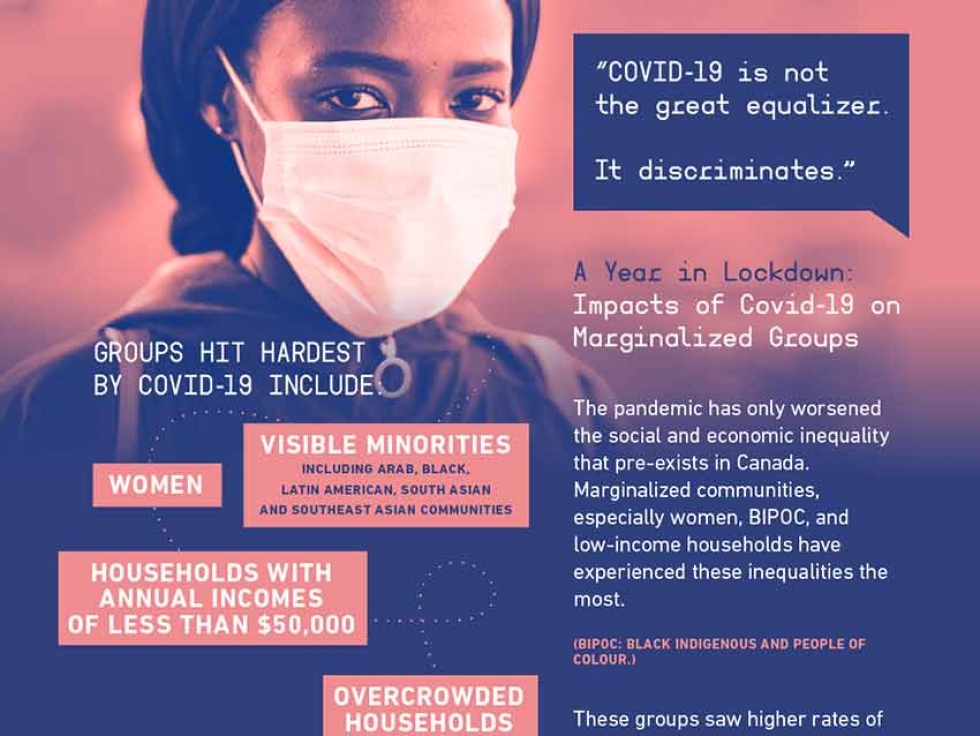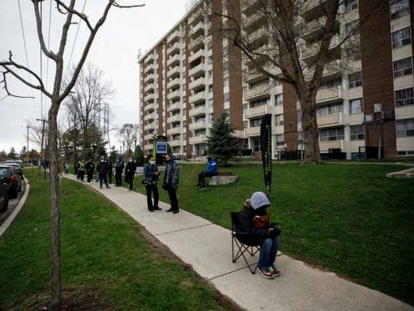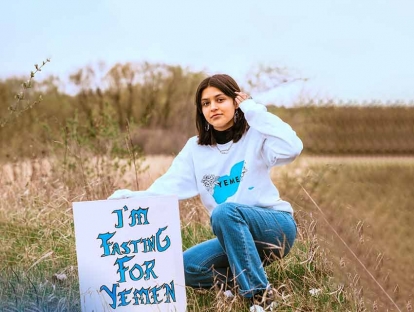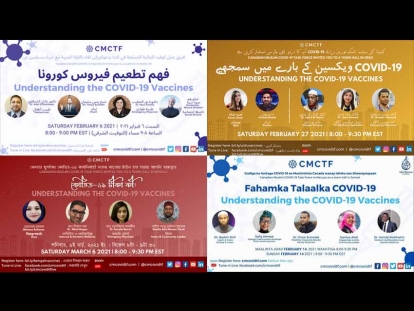
Apr
Islamic Relief Canada and York University researchers calls for BIPOC communities to be prioritized for vaccinations in light of new report
Written by Islamic Relief CanadaResearch study analyses pandemic’s economic impact on marginalized Canadians
Burlington, ON - Islamic Relief Canada, in partnership with York University, is releasing a new research report called One Year Later: Unmasking COVID-19 today.
Supported by the Mitacs Accelerate research program, the report reveals that the COVID-19 pandemic has exacerbated economic inequalities in Canada. Marginalized groups, especially BIPOC, women and low-income people, have experienced the highest percentages of illness contraction, job losses and economic hardships.
The research indicates that the long-term effects on these vulnerable groups will include: an increase in poverty; SME closures; household debt and mortgage defaults; precarious housing, evictions and food insecurity; and unemployment in certain industries experiencing shutdowns.
“It’s clear that unless action is taken now, marginalized communities will continue bearing the brunt of the financial and health challenges posed by the COVID-19 pandemic,” says Reyhana Patel, Head of Communications and Government Relations at Islamic Relief Canada.
Based on the findings of the report, Islamic Relief Canada is making several recommendations, including:
“It’s clear that unless action is taken now, marginalized communities will continue bearing the brunt of the financial and health challenges posed by the COVID-19 pandemic,” says Reyhana Patel, Head of Communications and Government Relations at Islamic Relief Canada.
Based on the findings of the report, Islamic Relief Canada is making several recommendations, including:
- BIPOC communities — along with essential workers, the elderly and those with underlying medical conditions — should be prioritized for vaccines in areas with high rates of COVID-19
- A financial relief fund should be created for economically disadvantaged BIPOC community members
- Targeted support (such as skills training and job placement programs) should be provided to BIPOC communities and other vulnerable groups














